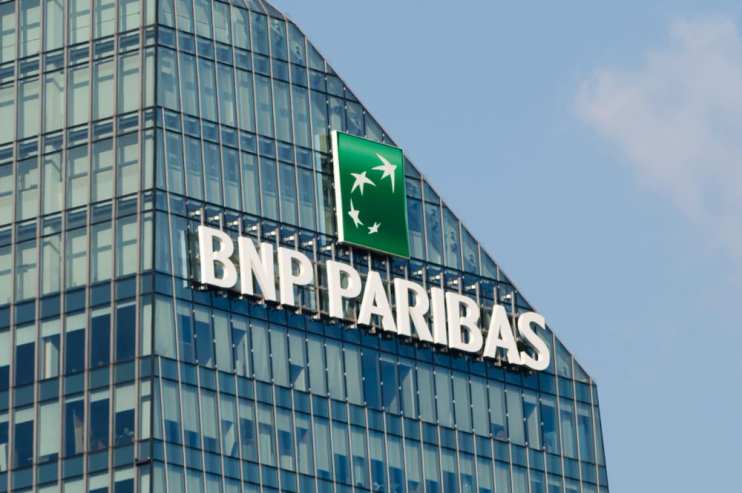BNP Paribas beats estimates on debt financing and cost management

BNP Paribas, the euro zone’s biggest bank, beat estimates in the second quarter as its corporate debt financing business and strong cost management partly offset a slump in securities trading.
The French lender’s second-quarter net income fell 4.9 per cent on a reported basis to €2.8bn (£2.4bn), beating the €2.5bn analyst consensus compiled by the company.
Group revenue fell 1.5 per cent to €11.4bn, also above expectations, while the cost of risk – money put aside for failing loans – was lower than expected at €689m.
The French lender also confirmed its 2025 targets.
“A beat on better cost control is rare and reassuring about BNP’s focus on controlling costs in a high inflation environment,” Royal Bank of Canada said in a note to clients.
BNP shares were up two per cent in early trading.
The downturn in BNP’s corporate and institutional banking (CIB) unit follows a streak of outperforming results in the field and resulted from high volatility in the markets.
BNP’s timely exit from the U.S. retail banking sector has left many market participants wondering what the lender would do with the €7.6bn war chest that it got from the sale of Bank of the West in a sector facing high IT and regulatory costs.
CIB sales were down 2.3 per cent from a year earlier, dragged down by a steep fall in fixed income, commodities and currency trading, which dropped by 18.4 per cent, while equity trading and primary services fell by three per cent.
By contrast, sales from global banking activities within CIB – comprising bond issues, syndicated loans and cash management – jumped by 17.5 per cent in the quarter at constant scope and currencies.
BNP’s bottom line also suffered from a set of exceptional items that totalled €723m after tax. These included an €125m provision for unspecified litigation.
They came on top of a €430m “adjustment of hedges” tied to changes in the terms and conditions set by the European Central Bank over “targeted longer-term refinancing operations” (TLTRO), a monetary stimulus scheme aimed at supporting the economy as interest rates remained at record lows, the bank said.
The group’s €5bn share buyback programme will proceed as planned, it confirmed, adding that the second tranche of €2.5bn had been approved and will be launched from early August.
BNP Paribas’ performance in retail banking contrasted with Italy’s UniCredit and Spain’s Santander, whose earnings both benefited from the rebound in lending income thanks to rising interest rates.
Banking revenue in France is constrained by stringent rules on mortgage rates, which are capped and essentially granted on a fixed-rate basis.
A government-fixed remuneration rate on the country’s most popular and tax-free savings account, Livret A, also weighs on banks’ margins.
Reuters – Mathieu Rosemain
